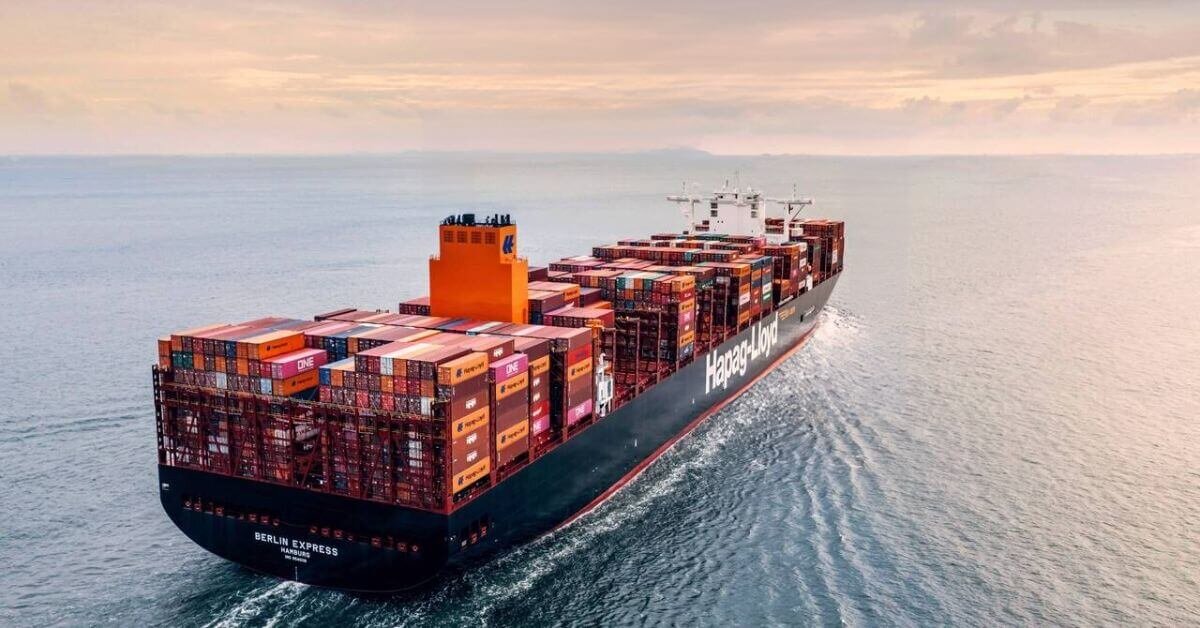Prominent Greek shipowner Harry Vafias expects the proposed US port fees on Chinese-built vessels to have a huge impact on the shipping industry, potentially leading to a two-tier market
Speaking to Riviera, Mr Vafias emphasised the proposed fees are substantial, affecting numerous Greek and international shipping companies that operate fleets with a high proportion of Chinese-built vessels. In many cases, these fees could amount to approximately 10% of a vessel’s value, meaning after just 10 US port calls, operators of these vessels would face severe financial consequences.
Conversely, fleets composed of non-Chinese-built vessels, such as those operated by the five companies within the Vafias Group, stand to gain a competitive advantage. The Vafias Group, comprising US-listed StealthGas, Imperial Petroleum, C3is Inc, and private firms Stealth Maritime and Brave Maritime, controls 94 vessels, all built outside China. “We may be the only company in Greece and Europe with a fleet of this size and no exposure to China,” Mr Vafias said.
“If these measures are implemented, it will give us a significant advantage over our competitors,” he stated. The Greek shipowner further explained the policy could create a two-tier market, where vessels built in South Korea and Japan would see increased demand and higher valuations, while Chinese-built ships would decline in value.
When asked whether Japanese and South Korean shipyards could compensate for the potential shortfall in Chinese-built tonnage, Mr Vafias noted the answer depends largely on cost. While South Korean shipyards do have available berths, their pricing is considerably higher, influencing investment decisions.
“In any case, we believe there is a significant quality difference between tonnage built in China versus South Korea and Japan. That’s why we’ve chosen to build our ships there, and now this decision may work to our advantage,” he added.
Tariff impact
The US administration has recently escalated trade tensions, with President Donald Trump confirming new 25% tariffs on imports from Mexico and Canada while doubling duties on Chinese goods to 20%. In response, China has announced retaliatory tariffs of 10%-15% on select US imports, effective 10 March.
Mr Vafias believes the US tariffs will have a positive effect on the tanker market, as longer trade routes will likely emerge as a result of shifting supply chains. “If it becomes less beneficial for the US to import oil from Mexico, it will seek alternative suppliers from more distant locations, increasing tonne-mile demand,” he explained.
However, these tariffs could negatively impact the container freight market, given the high trade volumes exchanged between the US and China.
Growth trajectory
Meanwhile, the Vafias Group continues to expand its fleet through selective acquisitions. Brave Maritime, the group’s dry bulk arm, recently purchased its 20th bulk carrier in two years. According to shipbroking sources, the Greece-based company was the successful bidder forDream Star, a 2014-built (in Japan), 81,782-dwt Kamsarmax bulk carrier fitted with scrubbers. Reports indicate at least five buyers had competed for the vessel. With this latest acquisition, Brave Maritime now owns a fleet of 32 bulk carriers.
A key advantage of the five shipping companies within the Vafias Group is their strong financial position, particularly their lack of debt. InStealthGas’ recent Q4 report, Mr Vafias highlighted the company is now net-debt free, having significantly reduced its debt in the current quarter.
Among the Group’s three US-listed entities, StealthGas currently owns 31 LPG carriers with a total capacity of 349,170 m³. Imperial Petroleum operates a fleet of 12 vessels, including seven MR product tankers, two Suezmax tankers, and three Handysize bulk carriers, with a total capacity of 751,000 dwt. Additionally, the company has contracted toacquire seven more bulk carriers, adding a further 443,000 dwt of capacity. Finally, C3is Inc owns four vessels – three Handysize bulk carriers with a combined capacity of 97,664 dwt and one Aframax oil tanker with a cargo capacity of approximately 115,800 dwt – bringing its total fleet capacity to 213,464 dwt.





